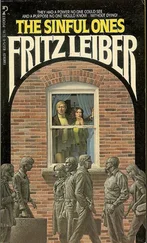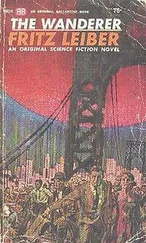Fritz Leiber - The Best of Fritz Leiber
Здесь есть возможность читать онлайн «Fritz Leiber - The Best of Fritz Leiber» весь текст электронной книги совершенно бесплатно (целиком полную версию без сокращений). В некоторых случаях можно слушать аудио, скачать через торрент в формате fb2 и присутствует краткое содержание. Жанр: Фантастика и фэнтези, на английском языке. Описание произведения, (предисловие) а так же отзывы посетителей доступны на портале библиотеки ЛибКат.
- Название:The Best of Fritz Leiber
- Автор:
- Жанр:
- Год:неизвестен
- ISBN:нет данных
- Рейтинг книги:3 / 5. Голосов: 1
-
Избранное:Добавить в избранное
- Отзывы:
-
Ваша оценка:
- 60
- 1
- 2
- 3
- 4
- 5
The Best of Fritz Leiber: краткое содержание, описание и аннотация
Предлагаем к чтению аннотацию, описание, краткое содержание или предисловие (зависит от того, что написал сам автор книги «The Best of Fritz Leiber»). Если вы не нашли необходимую информацию о книге — напишите в комментариях, мы постараемся отыскать её.
The Best of Fritz Leiber — читать онлайн бесплатно полную книгу (весь текст) целиком
Ниже представлен текст книги, разбитый по страницам. Система сохранения места последней прочитанной страницы, позволяет с удобством читать онлайн бесплатно книгу «The Best of Fritz Leiber», без необходимости каждый раз заново искать на чём Вы остановились. Поставьте закладку, и сможете в любой момент перейти на страницу, на которой закончили чтение.
Интервал:
Закладка:
Whitlow gnawed his lip baffledly.
The Chief slipped in a quick question to the Senior Coleopteroid. “What progress?”
“None whatsoever. His mind is extraordinarily difficult to grasp. And as I anticipated, there is a shield.”
Whitlow rocked uneasily on his shoulder, his eyes fixed on the star-edged horizon.
“Ill tell you this much,” he said. “It’s solely because I love Earth and mankind so much that I want you to attack her.”
“You choose a strange way of showing your affection,” the Chief observed.
“Yes,” continued Whitlow, warming a bit, his eyes still lost. ‘1 want you to do it in order to end war.“
“This gets more and more mysterious. Start war to stop it? That is a paradox which demands explanation. Take care, Mr. Whitlow, or I will fall into your error of looking on alien beings as evil and demented monsters.”
Whitlow lowered his gaze until it was fixed on the Chief. He sighed windily. “I guess I’d better tell you,” he muttered. “You’d have probably found out in the end. Though it would have been simpler the other way—”
He pushed back the rebellious hair and massaged his forehead, a little wearily. When he spoke again it was in a less oratorical style.
“I am a pacifist. My life is dedicated to the task of preventing war. I love my fellow men. But they are steeped in error and sin. They are victims of their baser passions. Instead of marching on, hand in hand, trustingly, toward the glorious fulfillment of all their dreams, they insist on engaging in constant
conflict, in vile war.”
“Perhaps there is a reason for that,” suggested the Chief mildly. “Some inequalities that require leveling or—”
“Please,” said the pacifist reprovingly. “These wars have grown increasingly more violent and terrible. I, and others, have sought to reason with the majority, but hi vain. They persist in their delusions. I have racked my brain to find a solution. I have considered every conceivable remedy. Since I came into the possession of. er. the device, I have sought throughout the cosmos and even in other tune-streams, for the secret of preventing war. With no success. Such intelligent races as I encountered were either engaged in war, which ruled them out, or had never known war—these were very obliging but obviously could volunteer no helpful information—or else had outgrown war by the painful and horrible process of fighting until there was nothing more to fight about.”
“As we have,” the Chief thought, in an undertone.
The pacifist spread his hands, palms toward the stars. “So, once more, I was thrown on my own resources. I studied mankind from every angle. Gradually I became convinced that its worst trait—and the one most responsible for war—was its overgrown sense of self-importance. On my planet man is the lord of creation. All the other animals are merely one among many—no species is pre-eminent. The flesh-eaters have their flesh-eating rivals. Each browser or grazer competes with other types for the grass and herbage. Even the fish in the seas and the myriad parasites that swarm in bloodstreams are divided into species of roughly equal ability and competence. This makes for humility and a sense of perspective. No species is inclined to fight among itself when it realizes that by so doing it will merely clear the way for other species to take over. Man alone has no serious rivals. As a result, he has developed delusions of grandeur—and of persecution and hate. Lacking the restraint that rivalry would provide, he fouls his planetary nest with constant civil war.
“I mulled this idea for some time. I thought wistfully of how different mankind’s development might have been had he been compelled to share his planet with some equally intelligent species, say a mechanically-minded sea dweller. I considered, how, when great natural catastrophes occur, such as fires and floods and earthquakes and plagues, men temporarily quit squabbling and work hand in hand— rich and poor, friend and enemy alike. Unfortunately such cooperation only lasts until man once more asserts his mastery over his environment. It does not provide a constant sobering threat. And then. I had an inspiration.”
Mr. Whitlow’s gaze swept the black-shelled forms—a jumble of satiny crescent highlights ringing the sphere of light enveloping him. Similarly his mind swept their cryptically armored thoughts.
“I remembered an incident from my childhood. A radio broadcast —we make use of high velocity vibrations to transmit sound—had given an impishly realistic fictional report of an invasion of Earth by beings from Mars, beings of that evil and destructive nature which, as you say, we tend to attribute to
alien life. Many believed the report. There were brief scares and panics. It occurred to me how, at the first breath of an actual invasion of that sort, warring peoples would forget their differences and join staunchly together to meet the invader. They would realize that the things they were fighting about were really trifling matters, phantoms of moodiness and fear. Their sense of perspective would be restored. They would see that the all-important fact was that they were men alike, facing a common enemy, and they would rise magnificently to the challenge. Ah my friends, when that vision occurred to me, of warring mankind at one stroke united, and united forever, I stood trembling and speechless. I—”
Even on Mars, emotion choked him.
“Very interesting,” thought the Senior Coleopteroid blandly, “but wouldn’t the method you propose be a contradiction of that higher morality to which I can perceive you subscribe?”
The pacifist bowed his head. “My friend, you are quite right—in the large and ultimate sense. And let me assure you”—the fire crept back into his hoarse voice—“that when that day comes, when the question of interplanetary relations arises, I will be in the vanguard of the interspecieists, demanding full equality for coleopteroid and man alike. But”—his feverish eyes peered up again through the hair that had once more fallen across his forehead—“that is a matter for the future. The immediate question is: How to stop war on Earth. As I said before, your invasion need only be a token one, and of course the more bloodless, the better. It would only take one taste of an outside menace, one convincing proof that he has equals and even superiors hi the cosmos, to restore man’s normalcy of outlook, to weld him into a mutually-protective brotherhood, to establish peace forever!”
He threw his hands wide and his head back. His hair flipped into its proper place, but his tie popped out again.
“Mr. Whitlow,” thought the Chief, with a cold sardonic merriment, “if you have any notion that we are going to invade another planet for the sake of improving the psychology of its inhabitants, disabuse yourself of it at once. Earthlings mean nothing to us. Their rise is such a recent matter that we hardly had taken note of it until you called it to our attention. Let them go on warring, if they want to. Let them kill themselves off. It is no concern of ours.”
Whitlow blinked. “Why-” he started angrily. Then he caught himself. “But I wasn’t asking you to do it for humanitarian reasons. I pointed out that there would be loot—”
“I very much doubt if your Earthlings have anything that would tempt us.”
Whitlow almost backed off his boulder. He started to splutter something, but again abruptly changed his tack. There was a flicker of shrewdness in his expression. “Is it possible you’re holding back because you’re afraid the Venusian molluscoids will attack you if you violate the perpetual truce by making a foray against another planet?”
“By no means,” thought the Chief harshly, revealing for the first time a certain haughtiness and racial pride bred of dry eons of tradition. “As I told you before, the molluscoids are a distinctly inferior race. Mere waterlings. We have seen nothing of them for ages. For all we know they’ve died out. Certainly we wouldn’t be bound by any outworn agreements with them, if there were a sound and profitable reason for breaking them. And we are in no sense—no sense whatever—afraid of them.”
Читать дальшеИнтервал:
Закладка:
Похожие книги на «The Best of Fritz Leiber»
Представляем Вашему вниманию похожие книги на «The Best of Fritz Leiber» списком для выбора. Мы отобрали схожую по названию и смыслу литературу в надежде предоставить читателям больше вариантов отыскать новые, интересные, ещё непрочитанные произведения.
Обсуждение, отзывы о книге «The Best of Fritz Leiber» и просто собственные мнения читателей. Оставьте ваши комментарии, напишите, что Вы думаете о произведении, его смысле или главных героях. Укажите что конкретно понравилось, а что нет, и почему Вы так считаете.









